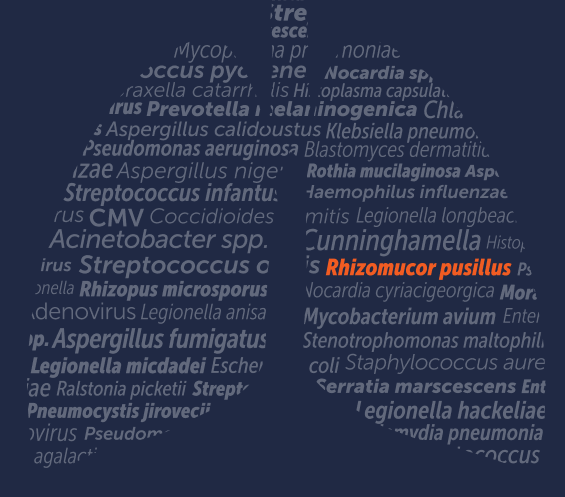

Pneumonia in the ImmunoCompromised: Use of the Karius Test for the Detection of Undiagnosed Pathogens
Introduction
In patients with hematologic malignancies (HM) or those who have undergone hematopoietic cell transplantation (HCT), pneumonia is a common infection and often contributes to mortality.1, 2, 3
Study Design
The first multicenter, prospective, observational study designed to compare Karius Test to Standard Of Care (SOC) in adults with hematological malignancies (HM) and/or Hematopoietic Cell Transplant (HCT) with suspicion of pneumonia.
The PICKUP Study enrolled 257 adult patients across 10 leading U.S. medical centers:
- Duke University Health
- University of Pittsburgh Medical Center
- Fred Hutchinson Cancer Research Center
- MD Anderson Cancer Center
- City of Hope
- Tulane Medical Center
- University of California, San Francisco Medical Center
- University of Colorado Denver
- Weill Cornell Medicine
- Memorial Sloan Kettering Cancer Center
Primary Endpoint:
The primary endpoint of this study was to determine the additive diagnostic value of the Karius Test, defined as the percent of patients with a probable cause of pneumonia exclusively identified by plasma mcfDNA sequencing
A rigorous Minimum Diagnostic Standard* consisting of both non-invasive and invasive standard of care (SOC) testing was required for study inclusion:
Results
Pathogens causing pneumonia were often not detected by SOC.
Only 30% identification of pneumonia causing pathogens by invasive or non-invasive SOC in the PICKUP Study (15+ tests on average)
40% relative increase in the adjudicated cause of pneumonia identified when the Karius Test was added to SOC
Primary Endpoint: Pathogens causing pneumonia identified exclusively by Karius Test
Possible antimicrobial change in 81% (17/21) of patients with a pneumonia etiology identified exclusively by Karius Test8
For 17 patients, adjudicated possible antimicrobial changes included: broadening of, narrowing of, and/or earlier antibacterial therapy (12/17), antiviral therapy changes (1/17), and antifungal coverage changes (5/17)
Pneumonia pathogens uniquely identified by the Karius Test
*Three patients had two adjudicated probable causes of pneumonia detected by plasma mcfDNA sequencing
**Note that 5 of these microbes were identified as pneumonia etiology in multiple patients
Conclusion
Adding the Karius Test to the diagnostic workup for identifying causative pathogens in pneumonia can improve diagnostic yield over SOC alone in patients with hematological malignancies or HCT.
The Karius Test is available as a send-out test to hospitals. Karius Test results for existing customers are available via:
If you are a new customer and would like to place the first order for a Karius Test go here.
For any questions, please contact Customer Success, available via phone: (866) 452-7487 or email: help@kariusdx.com